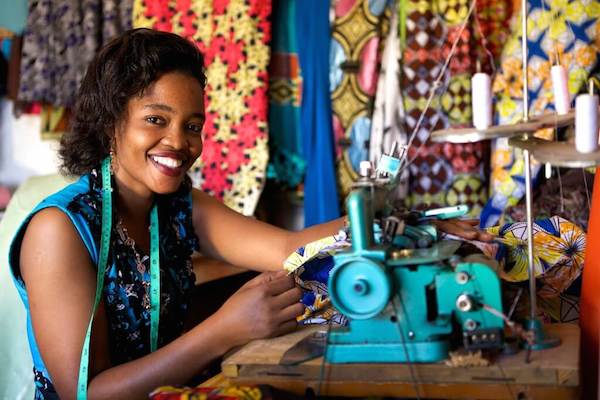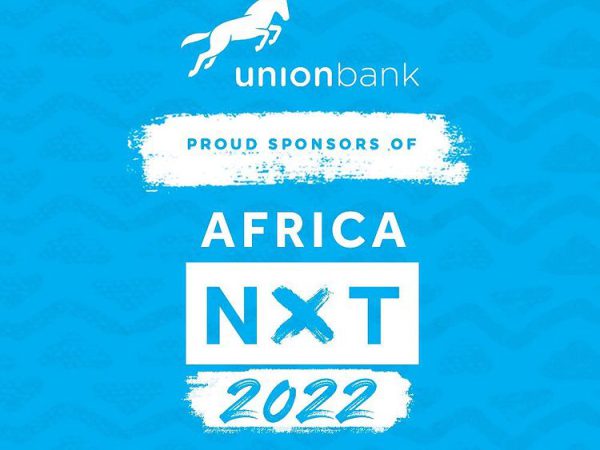
By Oyinkan Adewale
Mrs. Adewale is Executive Director, Chief Financial Officer, Union Bank.
This is the 3rd part of a paper delivered by her at a recent IWD seminar organized by a women empowerment NGO. Click here to read the previous post..
Identifying emerging trends that could impact your business
As part of your industry analysis, it is important to observe the current trends and identify which trends you can leverage when starting or running a business. Co-working, online shopping, artificial Intelligence and robotics, are some of the global trends disrupting businesses today.
Disruptive technology also presents an opportunity to be creative. Online retailers require logistics companies to help deliver their products. Equally, companies such as Google and Uber that wish to explore driverless cars are venturing into the unknown and require lawyers and programmers to assist with setting up their businesses. As entrepreneurs, we need to consider where we want to specialise as this might prove to create a niche in which to operate.
The role of social media platforms such as Facebook, Twitter and Instagram should also not be underestimated. Social media erodes borders by allowing companies to expand their market beyond Nigeria, as products/services can be advertised worldwide. By using the right hashtags, you can effectively market your products and services. For free!
In the same way, it is also important to note the nature of social media. If your products do not do what they claim to do, social media is quick to call you out, making the need to provide products and services of the highest quality, every time!
Underdevelopment and the opportunity to be innovative
In addition to emerging global trends, underdevelopment in Nigeria provides opportunities to be innovative. As mentioned earlier, Nigeria’s population of over 180 million people presents operators with a large potential market. This, coupled with access to technology, particularly through the use of mobile phones, presents vast opportunities in reaching the market. Numerous companies have used the peculiar nature of Nigeria to their advantage.
For example, LifeBank, a player in the Nigerian health service sector was able to use Nigeria’s underdevelopment as a platform to create an innovative and much needed service. LifeBank was created to fill a gap in the Nigerian health industry – the need for hospitals to have critical medical products such as blood, oxygen and vaccines required to save lives. Temi Giwa-Tunbosun, the founder of LifeBank saw a gap in the market and created an innovative solution leveraging technology and motorbikes to meet the need of hospitals across cities.
Also, women should not be afraid to enter or dominate areas men once dominated. For example, Kofo Akinkugbe, founder and Chief Executive Officer of Secure ID, a card manufacturing and personalisation company with clients in the public sector, financial sector and telecoms sector.
Funding your business
Funding can be provided either through equity or debt.
Equity funding involves third parties providing some of the capital and therefore owning part of the business. While business owners might not always want to give up full ownership of their company, arrangements can be made to buy out the company over a certain period of time. Furthermore, equity reduces the strain on cash flow which servicing debt can put on a business. You should first look to family and friends for equity investments as when they believe in the business, they are usually the last investors to pull out.
In 1999, the Central Bank of Nigeria introduced a Small and Medium Enterprises Equity Investment Scheme (SMEIS). SMEIS is a voluntary initiative of the Bankers’ Committee to promote Small and Medium Enterprises (SMEs) as vehicles for economic development, poverty alleviation and employment generation. The program involves banks committing some of their profit as equity to SMEs across the country.
Other than equity funding, debt funding is another option for business owners. While some consider debt as a negative, this is not necessarily so. Debt can help accelerate business growth and position a business to take advantage of opportunities in the market. Furthermore, debt funding is not always expensive. Organisations such as the CBN and the Bank of Industry (BOI) provide loans with single digit interest rates specifically targeted at SMEs or/and particular industries to encourage growth.
Some of the CBN loans include: Micro small and medium Enterprises (MSME) Development Fund, the Nigeria Incentive-Based Risk Sharing System for Agricultural Lending (NIRSAL) fund and the Commercial Agriculture Credit Scheme (CACS) Fund.
BOI loans are tied to the CBN loans and are targeted at particular industries such as Nollywood, fashion and agriculture to name a few. Some of the loans available from BOI include: Adire Kampala and AsoOke fund, Fashion Fund, Fish farming and processing and Nolly fund targeted at the Nigerian Creative arts industry ‘Nollywood’.
In addition to the CBN/ BOI loans, banks also provide special loan products for MSMEs. Union Bank has a range of non-collateral products for SME customers. For example, we have Cash flow lending for which customers are required to have an average monthly turnover of N50,000, and can borrow a maximum limit of N3m with zero collateral for those who have banked with Union Bank over a period of at least six months. We also offer School Finance, which offers schools up to N5m payable within one term.
When taking on debt, it is important to service the loan to prevent your name being blacklisted across the industry. In 2017, the CBN introduced a Credit Risk Management System (CRMS). The CRMS aims to identify and minimize serial default borrowing in the financial services industry and it is accessed prior to disbursing loans to borrowers to ensure they are not blacklisted. Effectively, the CRMS is a database of all loans used to enquire about borrowers past defaults. This means that no banks will lend to borrowers who have not serviced their loans. It is important to note that each of these funds comes with a collateral requirement which varies with each loan.
Business owners also have to be willing to open up their books/businesses for scrutiny as financierswilloftencarryoutduediligenceandexpecttoseeacertainstandardofprofessionalism to provide them with the comfort that the funds provided will not be squandered. As mentioned earlier, it is important to take advantage of Voluntary Asset and Income Declaration Scheme (VAIDS) to prevent facing tax investigations or criminal prosecution for tax offences.
Summing it all up…
21.2% of Nigerian women are unemployed. 21.8% are underemployed. Think seriously about whether you want to join that group and wait to be employed in someone else’s business or you want to take the risk and start something of your own. According to the United Nations Industrial Development Organisation (UNIDO), only 40% of those who wish to start a small businesses do, but only 20% of small businesses in Nigeria actually survive. If you aspire to be a successful entrepreneur, time spent envying Dangote and Oprah is time wasted; it is much better to get going now and come up with a strategy.
It is not enough to just talk about creating bankable projects. Rather, what is important is to get to work and start planning how to execute our ideas and our passions.


